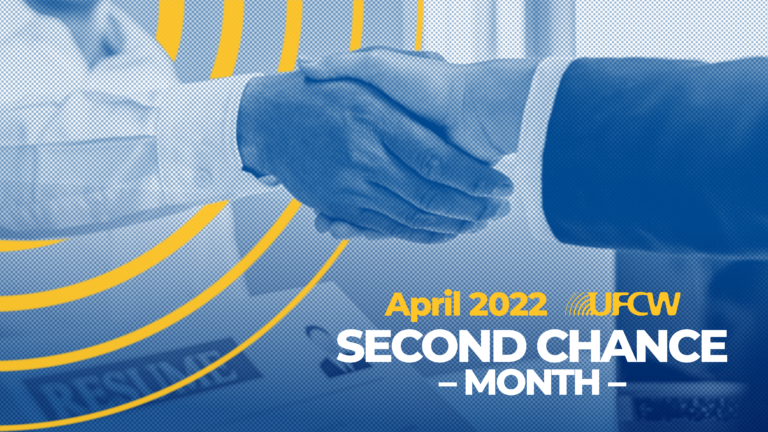
April is Second Chance Month, a time to reaffirm the importance of helping people who were formerly incarcerated reenter society. This month and throughout the year, the UFCW’s Civil Rights and Community Action Department is leading the effort to help our members and all hard-working people with prior nonviolent felonies get their records cleared and register to vote.
More than 70 million Americans have a criminal record that creates significant barriers to employment, economic stability, and successful reentry into society. Thousands of legal and regulatory restrictions prevent these individuals from accessing employment, housing, voting, education, business licensing and other basic opportunities. Because of these barriers, nearly 75 percent of people who were formerly incarcerated are still unemployed a year after being released.
Since 2016, the UFCW’s Civil Rights and Community Action Department has partnered with UFCW locals and allies to expunge the criminal records of some of our members and other workers in the community free of charge so that they can register to vote and have access to other services, such as affordable housing and education. To date, the UFCW has helped hundreds of people navigate their state’s expungement and sealing laws and clear their records.
Last year, the UFCW formalized an agreement with the National Association of Criminal Defense Lawyers (NACDL) to further assist with our union’s expungement efforts. This Second Chance Month, we are partnering with NACDL as they highlight and focus on collateral consequences, including those related to the right to vote and the right to serve on a jury. You can find more information about NACDL and Second Chance Month events here.
“We must support workers who are committed to rectifying their mistakes, redefining themselves, and making meaningful contributions to society,” said Director of the Civil Rights and Community Action Department LaQuita Honeysucker. “We do that by providing them with a second chance to fully access the ballot box, contribute to their communities, and succeed.”



